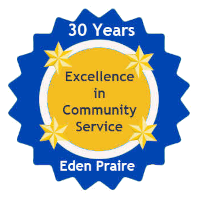CARPAL TUNNEL SYNDROME (CTS)
Need a hand with your hand problem? The first thing you need to consider is that maybe you don’t even have a hand problem. That’s right, I said it. Maybe your problem isn’t what or where you think it is. Sometimes problems are exactly where we feel them, but so often they are coming from other areas that we may never suspect because that area feels fine.
 When people are diagnosed with carpal tunnel syndrome, it is usually related to inflammation and swelling in the wrist and is blamed on over-use activities for the cause. Doctors will observe that there is pressure on the nerve running through the wrist, so their solution ends up as CTS surgery. This translates as cutting the ligaments in the wrist so the bones don’t affect the wrist nerve as much, but this is so short sighted! All those bones, ligaments and wrist structures are specifically designed for you. Just cutting perfectly normal structures might make you feel better, but it will never make your wrist function any better.
When people are diagnosed with carpal tunnel syndrome, it is usually related to inflammation and swelling in the wrist and is blamed on over-use activities for the cause. Doctors will observe that there is pressure on the nerve running through the wrist, so their solution ends up as CTS surgery. This translates as cutting the ligaments in the wrist so the bones don’t affect the wrist nerve as much, but this is so short sighted! All those bones, ligaments and wrist structures are specifically designed for you. Just cutting perfectly normal structures might make you feel better, but it will never make your wrist function any better.
It’s like observing a bucking bronco that keeps hitting the sides of a corral, and then the rancher just deciding to widen the fence! But when the horse hits the side of the wall less, can we really conclude that they have tamed the horse? Of course not! Taking anti-inflammatory drugs isn’t much better. That would be like drugging the horse to sleep. Even pain relievers will just numb the horse so they don’t feel the same fence, the same way. But you can’t argue with the short-sighted logic, if the goal is to just stop hitting the fence. Any of these therapies will change the dynamic of the bronco and the fence, but they will never get to the bucking. Ultimately, the rancher is left with the illusion that they have addressed the cause of the problem and yet, the horse isn’t any tamer and the wrist isn’t any better.
Office work and racket sports are common associations with the onset or worsening of CTS symptoms. But why do many other people doing the same activity, as those diagnosed with CTS never develop this condition? Are they trying less than people with carpal tunnel syndrome? There must be other factors that are associated with CTS, and there are. A major “make or break” factor is whether or not there is proper nerve communication from the brain to the hand. Carpal tunnel syndrome is one possible hand or wrist condition that may result in pain anywhere in the arm, but may present just like symptoms that are actually starting from a neck problem as a spinal subluxation. And to boot, your neck may actually feel great! So how can you really know?
Aside from treating the effects of CTS with drugs or surgery, get your spine checked for spinal subluxations to make sure your bucking bronco is tame before you start moving fence posts or putting your perfectly good horse to sleep. There is a really good reason why your bronco is bucking. Find out why. Giddy up!








